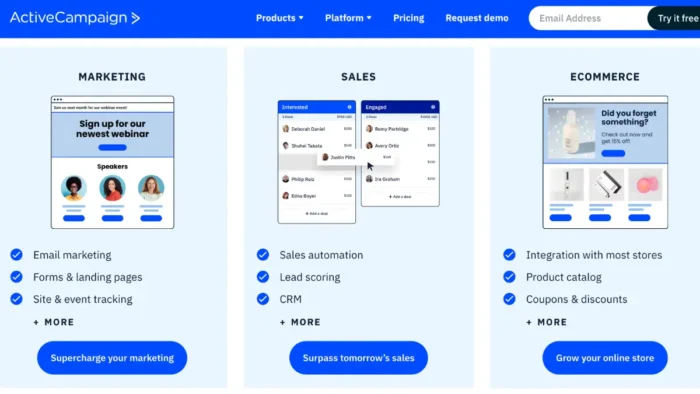As a business owner, you may have heard of the term SEO but aren’t quite sure what it means. Put simply, SEO (or search engine optimization) is the process of improving your website’s visibility and ranking in search engines like Google.
Why is this important? Well, if your website is more visible in search results, more potential customers will see it. And if your website ranks higher in search results, you’re more likely to get clicks from users.
In other words, SEO can help bring more traffic to your website, ultimately leading to more sales and conversions. In fact, getting it right is so important that many small companies call in the services of a freelance SEO specialist to help them get it right.
Sounds pretty good so far, right? But what exactly do you need to do to optimize your website for search engines? Here are some essential SEO tips to get you started:
1. Use relevant keywords throughout your website.
Keywords are the words or phrases users type into search engines when looking for something. So, if you want your website to show up in search results for a particular keyword or phrase, make sure to use that keyword or phrase on your website. This includes using it in your page titles, headings, and content.
Related: SEO for Business Growth: 6 Ways SEO Leads to Growth
2. Optimize your website’s load time.
Your website’s load time is the amount of time it takes for your website to appear when a user types in your URL. A slow load time can frustrate users and cause them to leave your site. And if users are leaving your site quickly, this sends a signal to search engines that your website is not relevant or valuable. As a result, your website may rank lower in search results.
To improve your website’s load time, make sure to optimize your images and videos (so they’re not too large), use caching, and minimize your code.
3. Structure your website using headings and subheadings.
When structuring your website, it’s important to use headings and subheadings. Headings are the main titles of each page on your site (e.g., About Us, Services, Contact Us). Subheadings are the smaller titles or sections within each page (e.g., Our Story, Our Team, Our Services).
Using headings and subheadings helps both users and search engines understand your website’s content. Plus, it makes your content more skimmable-which is important since most users don’t read online content word for word.
Google looks for clues on a website to determine what the page is about. By using proper headlines (H1 for titles, H2 for subtitles) and formatting your content with headings and subheadings, you are improving both the user experience (UX) and SEO of your website.
4. Add new content regularly.
One of the best things you can do for SEO is to regularly add new content to your website. This could be in the form of blog posts, new product pages, or even just updates to existing pages. Not only does this help keep your website fresh and relevant, but it also gives you more opportunities to use relevant keywords and phrases. As a result, it can help improve your visibility and ranking in search results.
Don’t forget to include videos and images as well as text in your new content to make it more engaging and informative.
5. Promote your website on social media.
Social media is another great way to improve your website’s SEO. When you share your website’s content on social media, you’re essentially giving it another avenue for people to find it. Plus, if your content is popular and gets shared a lot, this can help improve your ranking in search results.
When deciding which social media platform to use, consider where your target audience is most active. For example, if you’re targeting young adults, you may want to focus on platforms like Snapchat and Instagram. If you’re targeting a more mature audience, Facebook and LinkedIn may be better options.
Remember to be consistent in your language and style across all your channels, including your website. This will help create a cohesive brand that users will recognize and trust.
6. Include alt text for images.
Alt text is the text that appears in place of an image if the image doesn’t load. It’s also the text that’s read aloud by screen readers-which are used by people who are blind or have low vision.
Including alt text for images is important for two reasons: first, it helps improve the accessibility of your website; second, it gives search engines another opportunity to index your site. When writing alt text, be sure to include relevant keywords but don’t stuff them in (this will only hurt your website’s ranking).
A good rule of thumb is to keep your alt text short and to the point.
7. Use internal linking.
Internal linking is when you link to other pages on your website from within your website’s content. This is different from external linking, which is when you link to other websites from your own. Internal linking can be helpful for a few reasons:
- It helps users navigate your website more easily.
- It gives search engines an idea of the structure of your website.
- It can help improve your website’s ranking in search results.
When adding internal links, be sure to use relevant keywords as the anchor text (the clickable part of the link). For example, if you’re linking to a page about dog food, the anchor text could be “dog food,” “types of dog food,” or “best dog food.”
8. Optimize your website for mobile.
More and more people are using their phones and tablets to access the internet, so it’s important to make sure your website is optimized for mobile. Mobile-friendly websites load quickly, are easy to use, and look good on all devices.
There are a few things you can do to make sure your website is mobile-friendly:
- Use responsive design. This means that your website will automatically adjust to fit any screen size.
- Use large font sizes. This makes it easier for people to read your content on small screens.
- Use icons and buttons instead of text links. Icons and buttons are easier to tap on mobile devices.
Our Roundup
SEO is important for any business because it helps improve visibility and ranking in search results. There are a few things you can do to improve your website’s SEO, and we’ve detailed those for you in this article. By following these tips, you can help your website rank higher in search results and reach more customers.





